Cloud Application Development for Business
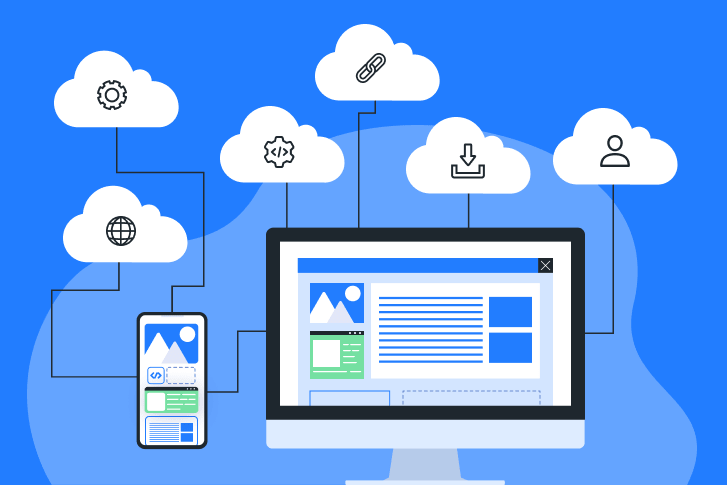
Cloud Application Definition & How It Works
The process of developing web-based software that stores part or all of its processing logic and data in the cloud is known as cloud application development. It is accessed via a web browser or a mobile app, and data is processed using a combination of a local device and a cloud computing solution. Data processing and computation are handled by the cloud via an API (application program interface), despite the fact that the cloud app appears to the user as a regular website.
The possibilities of cloud development are endless. As a result of so many possibilities and benefits, cloud computing satisfies all IT resource and system requirements digitally and on-demand. And the number of services available is growing all the time. You might say that if your company has an IT requirement, there is a cloud solution to meet it. For example, it includes the services of cloud website development that covers domain registration, website hosting and maintenance, search engine optimization, and integration with third-party systems, as well as cloud database development which is an internet-connected storage solution that allows you to save files and data in the cloud.
What Is Cloud-Native Application Development?
Cloud-native development focuses on building apps that leverage cloud environments rather than the traditional technique of monolithic software development. These apps are built independently of any underlying architecture and are meant to benefit from a cloud-native architecture. Cloud-native solutions are built to thrive and scale in a variety of cloud settings, including public, private, and hybrid. In fact, cloud-native development with Node.js is frequently utilized in the development of web apps, IoT solutions, and applications that do not require a lot of CPU power, as developing cloud-native applications may be daunting from time to time. Anyways, since cloud-native applications are robust and simple to administer, they are becoming crucial in our highly advanced technological world.
Cloud Design Services
Infrastructure as a service (IaaS), platform as a service (PaaS), and software as a service (SaaS) are the three primary categories of cloud computing services. The term "cloud computing stack" refers to how each service is built "on top of" the others. Each has its own function and purpose, and understanding what they center on will help you choose them successfully to reach your company goals.
Infrastructure as a Service (IaaS)
Infrastructure as a service (IaaS) provides on-demand IT infrastructure for your platform and apps, including servers, storage, network, and operating systems. It's built on virtualization technology, so you'll be able to digitally access and manage the vendor's physical resources. It's also self-service, meaning you have total control over the resources. IaaS provides the same functionality as a traditional infrastructure without the need to build up and maintain it physically. Instead, you just rent it on a pay-per-use basis.
Features & Advantages of IaaS:
- The infrastructure may be rented on a pay-as-you-go basis;
- High scalability – resources may be readily upgraded to meet growing demands;
- Possess the highest level of flexibility;
- The ability to customize and manage resources;
- Reduces operational costs and eliminates capital expenditure.
Linode, Rackspace, Amazon Web Services (AWS), Cisco Metacloud, Microsoft Azure, Google Compute Engine (GCE), and Digital Ocean are the most popular examples of Infrastructure as a Service.
Platform as a Service (PaaS)
Platform as a service is an IaaS-based pre-configured platform. It allows developers to design, deploy, and manage their apps without setting up and configuring infrastructure resources. It includes a ready-to-use runtime environment, as well as servers, storage, an operating system, and other infrastructure. The concept behind PaaS helps concentrate on developing the app rather than worrying about the infrastructure.
Features & Advantages Of PaaS:
- Provides a pre-built framework for app deployment and management;
- By automating infrastructure management, it is possible to focus time and resources on the building;
- Highly scalable – resources may be scaled up to meet growing demands;
- Highly adaptable — tools and services may be easily integrated;
- Developer-centric as well as product-centric.
The most popular examples of Platform as a Service include AWS Elastic Beanstalk, Heroku, Windows Azure, Force.com, OpenShift, Apache Stratos, and Magento Commerce Cloud.
Software as a Service (SaaS)
Perhaps, many have been asking the question: how is the development of SaaS related to cloud computing? It is one of the most popular cloud development services. Software as a service or SaaS is an easier paradigm to grasp. With SaaS, the supplier provides you cloud-based, on-demand access to its applications. A web browser or an API may be used to access the majority of SaaS products. It means you won't have to install it on each device separately. The supplier is also in charge of software upgrades, security patching, and maintenance, as well as the underlying infrastructure. As a result, SaaS is a superior choice for a company to begin employing apps with less work and money.
Features & Advantages of SaaS:
- On-the-go convenience and device compatibility.
- Installing and administering software takes less time and money.
- On-demand and subscription-based SaaS provides flexibility.
- Businesses can concentrate on their core competencies.
The most popular examples of Software as a Service include Google Apps, Salesforce, Dropbox, MailChimp, ZenDesk, DocuSign, Slack, and Hubspot.
Cloud Design Services: When To Use
| IaaS | PaaS | SaaS |
|
|
|
Cloud Deployment Models
Depending on their objectives, companies have quite varying performance requirements. The key reasons are the level of performance required when it comes to investment capabilities, privacy, concurrency, security, and control over the desired data. The location of the data center is a crucial factor to consider when selecting a cloud design service. That is why cloud models to develop and deploy applications are classified according to the location and can be differentiated among four major models: private cloud, community cloud, public cloud, and hybrid cloud.
Private Cloud
The private cloud deployment strategy gives your company its own private cloud environment. The main function of virtualized components, which can be on-premise or in the data center of the provider, is increasing processing and storage capabilities. A private cloud offers better levels of security and control since organizations may create and operate the environment based on their own requirements and goals.
Community Cloud
A community cloud's setup is quite similar to that of a private cloud. The main difference is that with a private cloud, the cloud computing infrastructure and servers are owned and managed by a single private firm. A community cloud method, on the other hand, pools the resources of several small enterprises to share infrastructure costs, operations, and deployment.
Public Cloud
The public cloud provides its users with computing and storage resources through the Internet. Because companies may avoid not-so-budget-friendly on-site hardware deployment and maintenance, the public cloud offers significant cost savings.
Hybrid Cloud
The best qualities of the public and private cloud created the hybrid cloud. With hybrid architecture, you may host the app in a safe environment while taking advantage of the public cloud's cost savings and quick time to market.
Enterprise Software Development In Cloud: Possibilities & Benefits
The cloud has been one of the most popular developments in the technology sector in recent years, and there are several advantages to cloud migration for your company. In fact, cloud computing is becoming more popular: according to a poll done by the Institute for Data Communication (IDC), 60 percent of respondents believe cloud computing is the most significant technology for digitalization in businesses.
Cloud computing can assist you in setting up a virtual office and allows you to link your complete company from anywhere at any time. You may access data in a lot more efficient and straightforward manner now that numerous web-enabled gadgets are developing in today's corporate sector. Here are some of the most prominent reasons why businesses choose cloud solutions development.
Business Continuity
For business continuity planning, protecting your data and systems is critical. In many instances, such as a natural disaster, power outage, or other issues, storing your data in the cloud ensures that it is backed up and preserved in a secure and safe location, allowing you to access your data and continue your workflow without interruption.
Audit & Business Planning
Cloud computing systems monitor and optimize resource consumption automatically. As a result, companies can rely on it whether their data needs to be optimized or scaled, or their business's responsiveness has to be enhanced. You will save time, minimize mistakes, and enhance the planning and reporting process with such a clever solution.
Scalability
As all types of cloud models are delivered on-demand, they are all dynamic scaling services. There is no need to send specific warnings to service providers whenever a scaling issue develops, allowing for continually excellent performance.
Productivity & Speed Increment
Even if no cost-cutting solutions are available, the cloud still allows for flexibility in the overall experience. Businesses just need a short amount of time to get their apps up and operating after that, and this technique reduces total administration requirements.
Budget-Friendly
Though it is always context-dependent and rarely given, the cloud has the potential to be a cost-cutting environment.
Cloud Service Development: Pros and Cons
Custom Cloud Application Development & Pay-As-You-Go Computing Model
If you're starting from scratch with cloud-based web application development, there are a few secure ways by which cloud developers may supply the essential software. Organizations have the liberty of choosing between custom cloud application creation and pay-as-you-go cloud computing, each with its own set of benefits.
Custom Cloud Application Development
It's no secret that custom application development takes a long time; nevertheless, each layer is tailored to your organization's particular requirements. Software developers create from scratch solutions that are tailored to your company's needs. Such software is created with the organization's infrastructure, installation needs, branding, and other factors in mind, so it will perform well only for that organization. The most beneficial way for businesses to develop cloud apps is custom development.
Pay-As-You-Go Cloud Computing
Pay-as-you-go cloud computing (PAYG cloud computing) is a cloud computing payment mechanism that charges based on how much you use it. The method is comparable to paying utility bills in that just the necessary resources are used. One of the most significant benefits of the pay-as-you-go method is that no resources are wasted because clients only pay for the services they utilize, rather than for the entire package.
Application Development In Cloud Computing: Pros And Cons
Cloud computing has taken over the IT world today. Organizations of all sizes are migrating their present IT infrastructure to the public cloud, their own private cloud, or a hybrid cloud that combines the best of both public and private cloud capabilities as mentioned above. However, before taking the steps of migrating to any of the clouds, an organization should definitely assess their current IT infrastructure, consider all of their limits and workload or application restrictions, and then assess if the cloud will fix or eliminate their current challenges and limitations. Here are some advantages and disadvantages of cloud-based application development everyone should take into consideration.
| Advantages | Disadvantages |
| Infrastructure costs are not incurred. | Requires a good internet connection and a lot of bandwidth. |
| Cost-effectiveness and minimal management. | Infrastructure control is limited. |
| There are no administrative or managerial headaches. | Downtime. |
| Pay as you go. | Limited flexibility. |
| Reliability. | Security. |
| Easily accessible. | Vendor lock-in. |
| Backup and recovery of data. | Probability of technical problems. |
| Large-scale cloud storage. | Ongoing expenses. |
| Data control. |
How To Hire A Good Cloud Developer
Who Is A Cloud Developer?
Cloud developers are in charge of the implementation and maintaining a company's cloud infrastructure.
Generally, the responsibilities of a cloud developer are as follow:
- Designing and implementing cloud infrastructures
- Developing processes and workflow
- Advising on cloud architectures that are currently available
- Finding solutions for document integration
- Using performance indicators to capture services
- Training staff on the new procedures and requirements.
Cloud Development Technology Stack
| Languages And Frameworks | Cloud Development Platforms |
|
|
Cloud Developers Hiring: Step-By-Step Guide
Finding a cloud developer with the proper skill set for your business's specific niche isn't easy. It is a time-consuming and exhausting procedure; however, it is critical to the success of your project. Using reputable sources and employing correct recruitment methods and procedures can assist you in locating the talent required for your project.
If you need cloud programmers for your project, there are a few things you can do to make the process go smoothly.
1. Create an Attractive Job Description
It is necessary to establish a job description to begin your hunt for a cloud developer; however, make sure it is as appealing as feasible. It must clearly define and highlight all essential requirements and obligations to avoid any misunderstandings and achieve total transparency. In order to match the criteria of your project, you must define in detail who your ideal applicant is and what skill set he or she must possess. Keep in mind that the abilities you provide in your job description will vary based on the company's and project's objectives. To attract the finest applicants, make sure to explicitly define and explain the skill set you require.
2. Where to Find Cloud Developers
Depending on what you are searching for, there are a lot of different types of websites where you may find your ideal cloud developer. Choosing the right recruitment website is crucial to the success of your project. Here you have some ideas.
Traditional job portals
If you're short on time, traditional job portals might be able to assist you to find a cloud developer quickly that will meet your business needs. Such websites as Indeed, LinkedIn Jobs, Careerbuilder, and Glassdoor are among them.
Cloud Developers Conferences
One of the most interesting ways of searching for a cloud developer is to attend a conference. Such events are filled with different kinds of talent, which increases your chances to find someone who will perfectly match the requirements of your project.
Freelance marketplaces
A lot of freelance developers would want to work on a project like yours. Keep an eye on well-known freelance marketplaces like Upwork and Fiverr, as well as Lemon.io, Gun.io, and Python.org Jobs, if you're looking for a freelance cloud developer.
Remote-first forums
There are numerous websites where you may find candidates to work remotely for your company. Websites like Angel.co, Remotive, and WWR, for example, are very popular for cloud developer roles.
Outsourcing companies
This is the most efficient and cost-effective way to add a qualified cloud developer to your team. Outsourcing cloud development companies can supply you with competent specialists that can precisely match your project demands using sophisticated recruitment strategies. East European countries like Ukraine, Romania and Poland, for example, are among the most preferred outsourcing destinations.
3. Interview
You can spot a talented cloud developer by requesting the proper information and learning about his behavioral intelligence and hard and soft skills.
Check For Technical Background
Technical interviews are conducted by senior engineers or programmers with significant cloud software development experts who can assess the candidate's degree of experience in the cloud environment.
Check for Necessary Knowledge and Skills
Once you have clearly defined the cloud developer requirements for your project in the job description phase, now you can check whether the candidates really possess them. Undoubtedly, you should pay attention to the most important cloud developer skills which include significant experience in PHP, Node.js, Vue, and React, apart from other knowledge that the specifics of your project requirements.
It is very much advisable to pay attention to the following skills in order to track whether your potential candidate knows how to develop cloud computing applications:
Development Skills |
Specific Cloud Computing Developer Skills |
|
|
Ask About Completed Certifications and Courses
Candidate skill certificates are fast becoming obsolete as the world of cloud development evolves. However, professional cloud developers regularly contribute to open-source projects or build software for the common good themselves. Asking about certificates and courses might help to authenticate a professional's abilities and formalize their understanding of the language. Additionally, participation as a speaker at cloud development conferences can be substituted for a certificate. Developers with a high level of expertise in a certain sector are frequently asked to discuss their experiences with these technologies.
Don't Forget About the Soft Skills
Before onboarding new specialists into the workflow, it is crucial to check their soft skills too. Pay attention to the attitude of the potential employee to see how he or she will react in difficult situations, as well as his or her competence and willingness to learn new skills along the way. It may be of interest to you that there are recruitment tools that may assist you in identifying soft talents as well. For example, such exams can give you results for problem-solving abilities and communication skills, among many other crucial soft skills.
Cloud Developer Salaries and Hourly Rates
In almost every market and area, cloud developers are in great demand, working for small and medium-sized enterprises as well as large corporations. Let's have a look at the salaries and compensation of cloud programmers from the United States, Europe, and Ukraine.
Average Cloud Application Developer Salary in the United States
A lot of factors impact the average income of front-end developers in the United States. Depending on the level of experience, location, and further skill mastery, among other things, the figures gathered from various sources may vary.
According to Talent.com, hiring a cloud programmer in the United States costs $123,270 per year. Taking into consideration their experience level, the average salary of a programmer ranges from $107,250 to $158,100 per year.
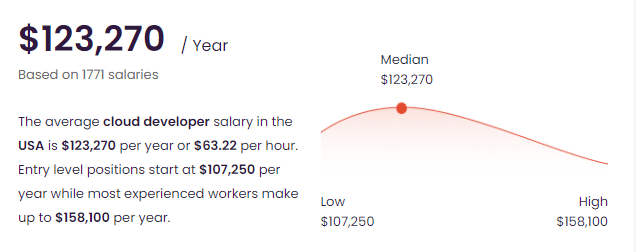
Average Salary of Cloud Developers in Europe and Ukraine
The average salary of developers from various European countries differs. Based on the capital of some European countries, sources report the following numbers:
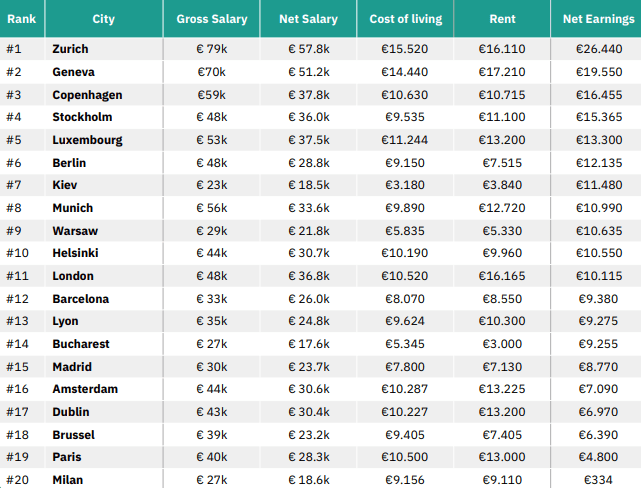
According to this data, it would be fair to conclude that Ukraine is one of the most attractive destinations to employ cloud developers. In fact, hiring on a remote basis provides flexibility in the location and time zones as well as extends the possibility of finding the necessary talent at a suitable price. Moreover, the largest developer community in Ukraine Dou.ua reports that a software developer´s salary in Ukraine is $3000 per month, ranging from $2600 to $3500, making it approximately $36k per year. In contradiction to the United States hiring market, this is the net salary of Ukrainian developers.
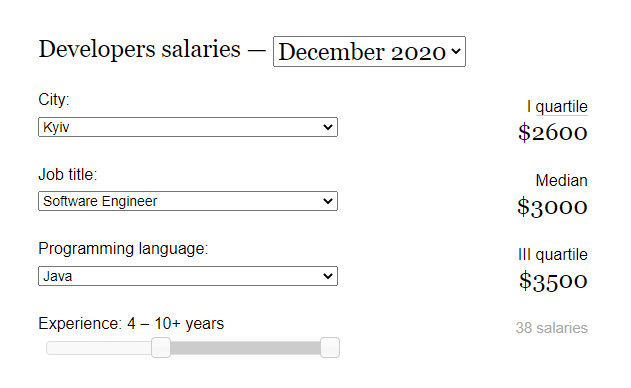
As a matter of fact, because of their professionalism, amazing programming abilities, and excellent English communication, Ukraine has become a popular destination for outsourcing cloud developers. Using the outsourcing model to find all sorts of front-end developers in Ukraine is an excellent alternative for those that need to expand their team for a project, save money, or just avoid the time-consuming recruiting procedure.
Conclusion
Based on the information provided in this guide, it would be fair to conclude that cloud computing, just like any other solution, has both advantages and drawbacks, but it has become an essential component of every business strategy. It's difficult to envision a world without cloud computing now. Applying the correct measures and efforts, the disadvantages of cloud computing can be avoided. The corporate environment has definitely altered as a result of cloud computing. Cloud computing has had a significant impact on the corporate environment. Cost savings, simplicity of access, data centralization, sharing possibilities, security, data backup, free storage, and quick testing are all features that stand out.
Now that you are knowledgeable enough about cloud application development including the advantages it provides, the most valuable technologies, and the cost of hiring cloud developers in the United States, Europe, and Ukraine, you should feel much more confident when making decisions on the topic.

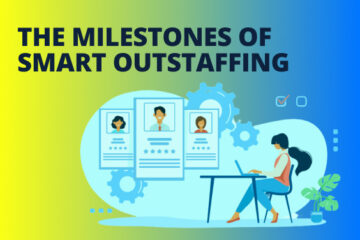
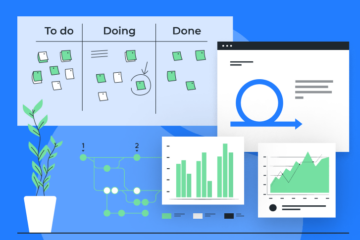

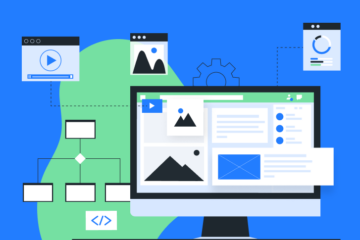
No comments